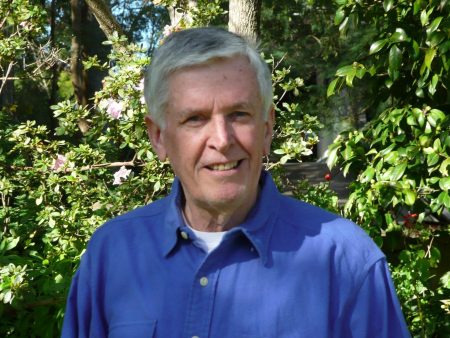JOHN TULLOH. The ties that bind - the US and Saudi Arabia.
February 20, 2019
If an international criminal like El Chapo, the Mexican drug baron, can be tried (and convicted) in the US within two years of falling into American hands, why cant the surviving alleged perpetrators of the 9/11 atrocity? Why is it that relatives of the 9/11 victims suing for damages have yet to see a day in court? Could it be the Saudi Arabia connection, given that the majority of the terrorists were from there?
For a country like the US which prides itself on human rights and the rule of law, it does seem extraordinary that the five 9/11 suspects whove been in American captivity since 2003 have not yet been prosecuted. Compare that with a Moroccan arrested in Germany in 2003 and charged with no less than 246 offences as an accomplice to the 9/11 atrocity. He has already completed his 15-year sentence and been deported while the American captives are still sweating in their Guantanamo Bay cells.
Relatives of the nearly 3000 people who lost their lives on 9/11 for years have been trying to sue Saudi Arabia for damages only to be thwarted by a legal morass and protests from the kingdom which demanded immunity. Riyadh said it had nothing to do with the attacks - of course! - despite 15 of the accused 19 terrorists being Saudis and funding coming from well-connected Saudi families. But last year a judge decreed the suit could go ahead. When that might be and how long it might take is anyones guess.
So is the other case despite the main suspect, Khalid Sheik Mohammed, a Pakistani Islamic militant, boasting in 2007 that I was responsible for the 9/11 operation - A to Z. The Voice of America, quoting US authorities, says it does not expect any trial to begin before next year and even then it could take several years to conclude.
One reason for the delay is the jungle of the US legal system. Another is that the military judge who has overseen the case since its inception stepped down last year. This meant his successor first has to digest 20,000 pages of transcripts plus an unknown number of classified records, according to the Miami Herald.
The delay should come as no surprise to Americans. After all, those sentenced to death for murder on average await 15 years before they are executed. Nobody should be more pleased about the procrastination than the Saudi rulers who more than ever are so sensitive to criticism. They spend millions each year on public relations and lobbying to demonstrate that America has no greater friend in the Arab world.
But they were unable to persuade Congress during the Obama years not to pass the Justice Against Sponsors of Terrorism Act which reduced the kingdoms sovereign immunity. Piqued, the Saudis threatened to unload up to $750 billion in US Treasury securities. It proved a hollow threat.
The US/Saudi relationship relationship is more about money - billions of it in oil and arms - as well as their mutual back-scratching and hostility towards Iran. It should not be forgotten what happened immediately after 9/11 when all commercial aircraft were grounded in the US for two days. There were exceptions: private jets to spirit prominent Saudis out of the country with the reported full approval of President George W Bush. By coincidence, he once had a major investment in Saudi Arabia just as his father did.
Today if there is any question certain to irritate President Trump it concerns Jamal Kashoggi, the Saudi dissident murdered at the Istanbul consulate. The CIA investigation concluded that Crown Prince Mohammed bin Salman (MBS), Saudi Arabias effective ruler, ordered the assassination. Maybe he did and maybe he didnt, said Trump, desperate not to offend his biggest foreign arms customer and hoping the matter would just quietly go away.
While there is no suggestion of political interference in these two cases, the bonds of the US/Saudi connection have prevailed ever since the Americans discovered oil in the kingdom and became the business partners of its rulers as epitomised by the giant Saudi conglomerate Aramco as in Arabian American Oil Company, but now more sensitively known as the Saudi Arabian Oil Company.
FOOTNOTE. If Washington thinks MBS might apologise in any way for what happened in Istanbul, it will be in for a long wait. He has been busy rounding up and jailing dissidents in record numbers for offences like criticising the royal court or ridiculing religious figures. An American writer on Mideast matters, Katherine Zoepf, says his need to control the narrative is so great that he will brutally suppress not only dissidents, but also those who agree with him - should they dare express their views in public. The US might have to get used to this sort of partner with unAmerican values. MBS is only 33 and has a potential 50 years on the royal throne.
John Tulloh had a 40-year career in foreign news.
